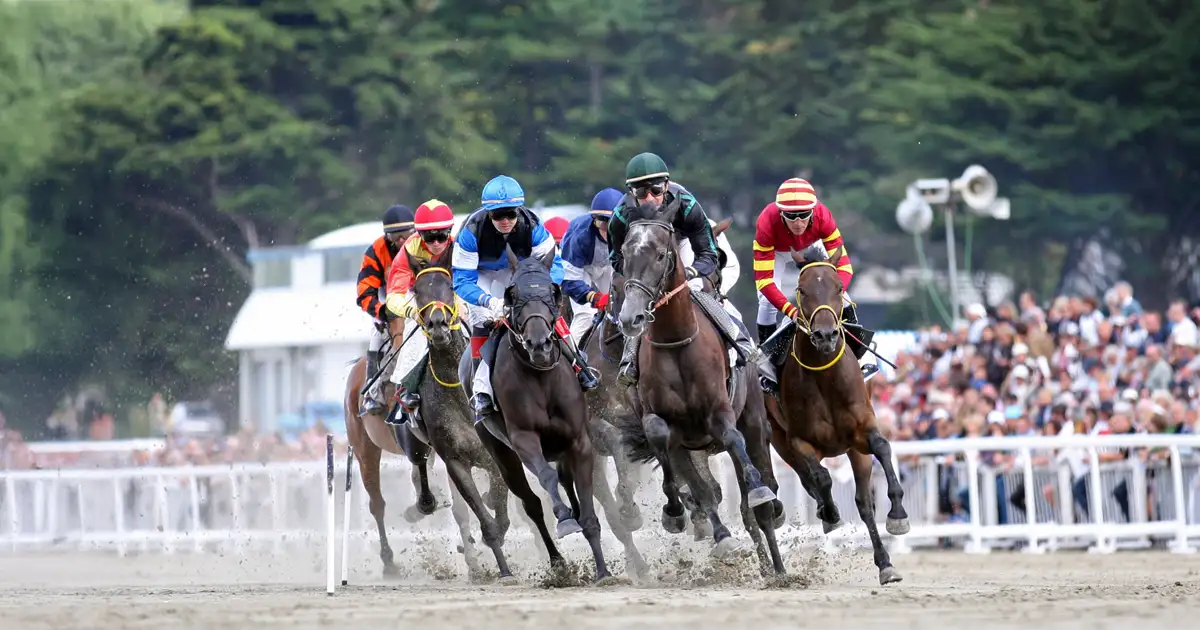Historic strike in the French horse racing industry against the proposed surtaxation
The horse racing industry is preparing for an unprecedented mobilization this Thursday, November 7, where a “dead day” will paralyze all races in France. This strike movement is announced as a firm response to the government’s tax amendment, considered deadly by many players in the sector. With this mobilization, the industry intends to demonstrate its opposition to a tax increase on horse racing bets, an amendment rejected at first reading but likely to return via a forced passage by article 49.3 of the Constitution.
An unprecedented protest movement
Horse racing, a flagship tradition in France, will therefore be suspended on November 7, a rare event, unprecedented since the Second World War and the Covid-19 pandemic. The decision to stop racing was made by Lakhdar Terbèche, a horse breeder and owner, who, by initiating this “dead day”, hopes to have a resounding impact. The movement’s slogan, “We walk or we die”, reflects the urgency felt by a sector that employs nearly 70,000 people.
The strike is expected to cost the State around 2 million euros, according to estimates by trade union associations.
However, other figures question the usefulness of such a movement.
“Yes, it is necessary for socio-professionals to demonstrate against this inappropriate taxation. No to the strike, because it is shooting ourselves in the foot.”
Pierre Bellaiche, president of the SHN-CGC Equestrian Union
“Canceling racing next Thursday is pointless, it just sends a signal to the government that we can afford to deprive ourselves of more than 3 million euros in net revenue.”
Guillaume Macaire, a well-known obstacle trainer in the industry
A controversial bill
At the heart of the demands: an amendment to the 2025 finance bill, which proposes to increase the taxation of horse racing bets, affecting both bets recorded at points of sale (from 6.9% to 7.5%) and those online (from 6.9% to 15%). MP Charles de Courson had also introduced a proposal to tax winnings over €1,500 at 13.7%, but this was also rejected. However, the industry remains mobilized, fearing a return of these measures in a different form.
“This type of taxation jeopardizes the activity of breeders, trainers and other professionals.”
Guillaume Macaire
François Bayrou, mayor of Pau and horse owner, also spoke out in favor of the industry, describing these measures as potentially destructive for thousands of jobs and rural traditions.
Although the deputies rejected these measures by 72 votes to 57, the specter of recourse to Article 49.3 looms, fuelling fears. In the event of forced adoption of these taxes, the sector could suffer a severe loss of competitiveness, threatening jobs and the overall functioning of the horse racing industry. In addition, many players in the sector believe that this overtaxation could divert punters to illegal gaming sites, thus increasing the risks of addiction without benefiting the legal economy.
The repercussions of 49.3: a risk for an entire sector
The increase in taxes on horse racing bets is only part of a set of measures that would also affect sports betting, casino games, and even advertising campaigns and promotional offers from gaming operators. For example, the tax on online sports betting could increase from 10.6% to 15%, while advertising and certain casino games would also be affected by an increase from 6.6% to 7.6%.
“We understand the government’s desire to curb certain addictive practices, but these taxes jeopardize a legal and regulated sector, which contributes significantly to public finances and employment.”
Laurent Saint-Martin, Minister of the Budget
He claims to want to protect horse racing activities but without any guarantee of ruling out 49.3. For the sector, these statements do not provide any real assurances: the use of 49.3 remains a major concern.
Fear of a forced passage and its consequences
By maintaining the pressure, professionals in the sector hope to obtain a complete revision of these amendments without resorting to 49.3, which would appear to them as an unjustified show of force.
“The strike is a sacrifice, but if the government pushes through, it would be a death sentence for many of us.”
Thibault Lamare, spokesperson for the horse racing unions
This mobilization of November 7 marks a turning point for the French horse racing world, which refuses to see its future compromised by a tax system that it considers unsuitable and potentially destructive.
What is 49.3?
Article 49.3 of the French Constitution allows the government to have a bill adopted without a parliamentary vote, by engaging its responsibility before the National Assembly. If the deputies wish to contest this adoption, they must file a motion of censure. If this is voted, the government is overthrown, but if it fails, the text is considered adopted. Article 49.3 is therefore a powerful, often controversial, tool that allows legislative blockages to be circumvented, but which can also be seen as a form of forcing through.
In the current context, the horse racing industry fears that the government will use this procedure to impose an increase in betting taxes despite the opposition encountered, which would further increase the climate of tension and concern in the sector.


